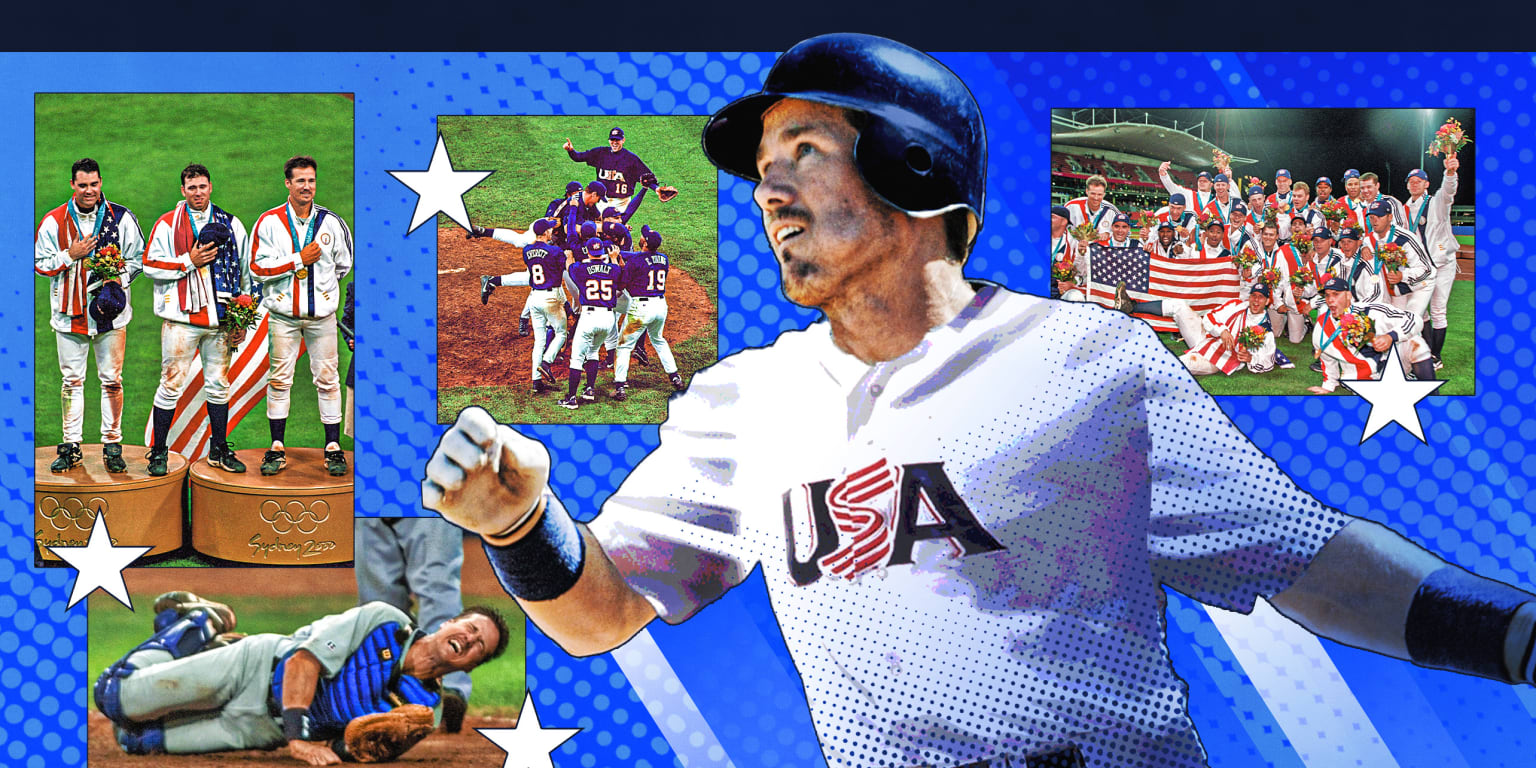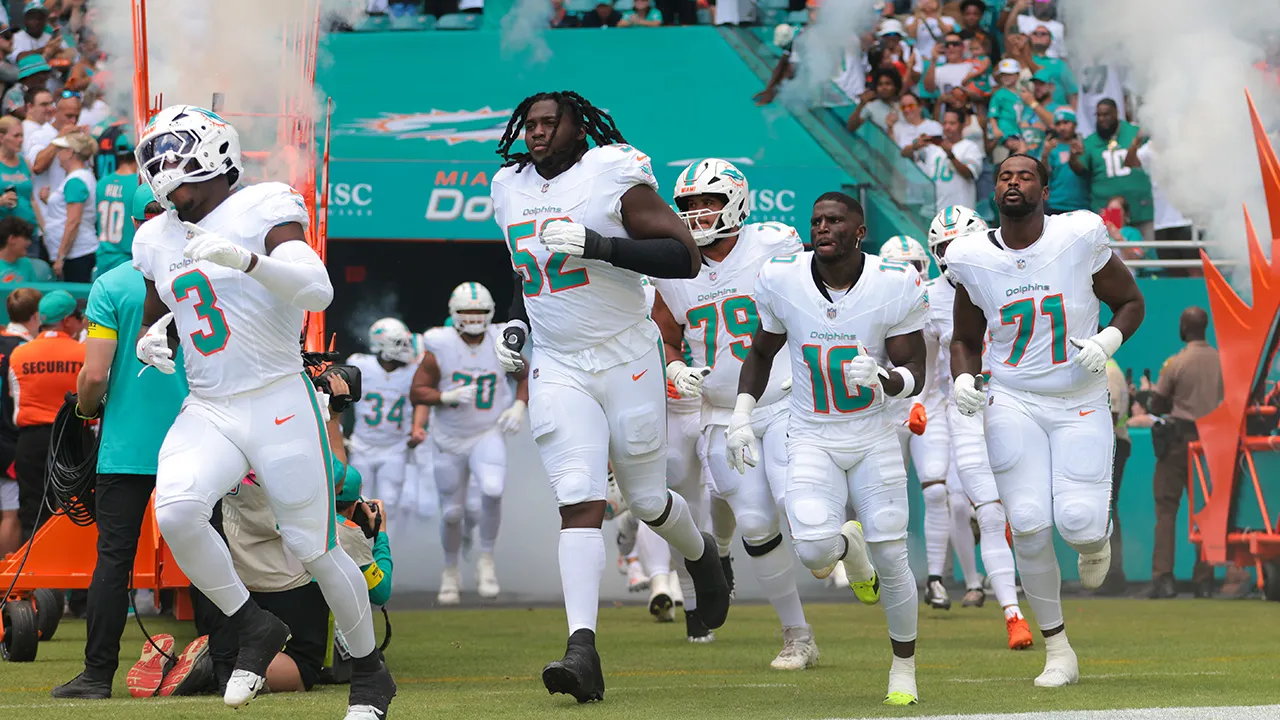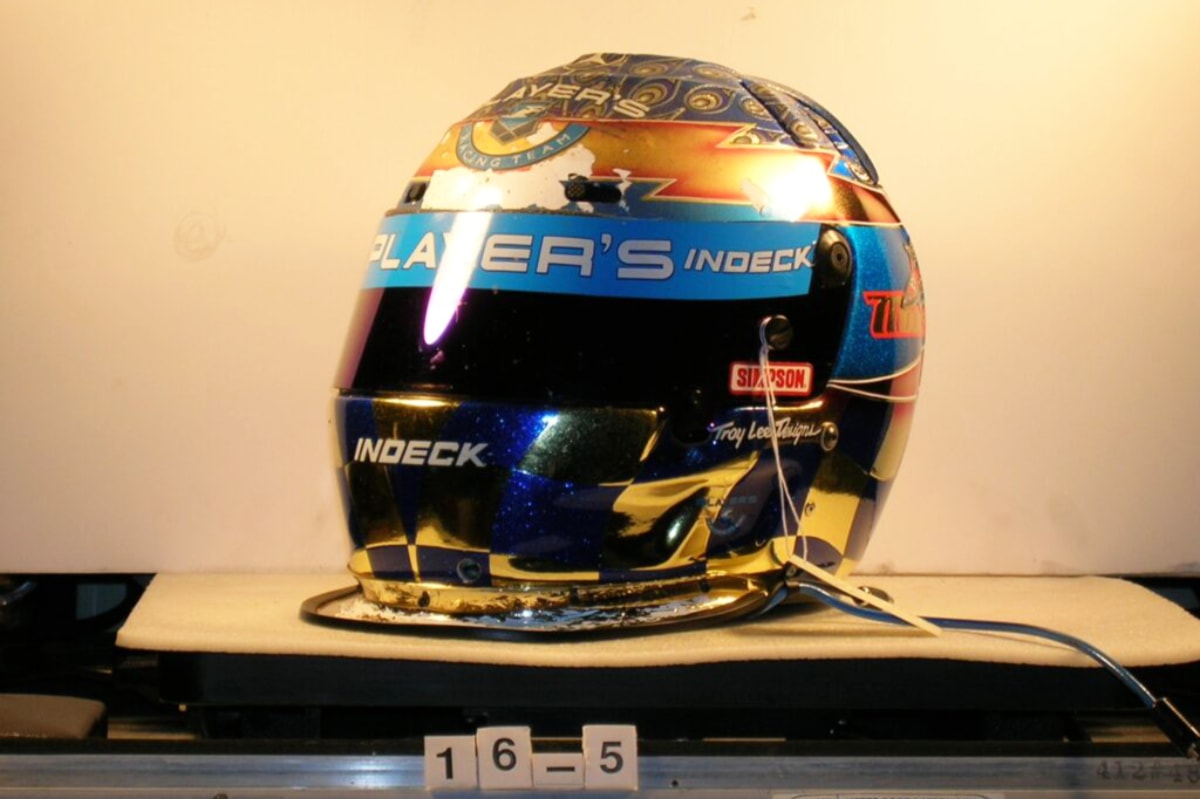
Pat Borders was known for being tough. A two-time World Series winner and the 1992 World Series MVP, with over 1,000 games behind the dish, would have to be. His manager with the Blue Jays, Cito Gaston, gave him the highest of compliments when he said that Borders was “someone who would run through a wall for me if I asked him to.”
When it came to the gold medal game in the 2000 Olympics, that’s exactly what United States manager Tommy Lasorda was going to do.
“The importance of winning was paramount,” Borders told MLB.com recently ahead of team’s 25th anniversary. “It was because of [Lasorda’s] attitude toward winning, and the intensity he brought. He did not want to lose, and he made it apparent that we don’t need to come in second place.”
* * *
The United States looked good. Despite the 2000 Summer Olympics in Sydney, Australia, being the first time that professional ballplayers were allowed to participate, the U.S. had entered as underdogs. It was the third time that baseball was an official medal sport at the Olympics, and the U.S. had never finished better than bronze. The Cuban national team, in the midst of reaching 40 consecutive international finals stretching back to 1952, were still the team to beat; Japan, soon to usurp that title in the near future, wasn’t far behind.
But with Lasorda on the bench, there would be no allowance for anything worse than gold. Having Borders to navigate a young pitching staff full of future studs like Ben Sheets and Roy Oswalt through the international competition — while guiding the equally green infield during the game’s most crucial moments — was an important part of that plan.
After rushing out to a 5-0 record, including a 4-2, 13-inning victory against Japan, the United States suffered its first setback with a 6-1 defeat to Cuba in the round-robin stage. The loss itself was not an issue — the U.S. was still on track to reach the semifinals.
Far more worrying was what happened in the bottom of the eighth. With Cuba leading, 5-0, pinch-runner Yobal Duenas rounded third base and raced toward home.
“He came in sliding spikes-high,” Dave Fanucchi, the Team USA press officer at the time, noted in his book “Miracle on Grass.” “Borders went down writhing in pain, as the nasty slide had been one last message from the Cubans that this wasn’t over.”
Though X-Rays after the game were negative, Borders’ ankle had swollen to the size of a grapefruit.
“I thought I was done,” Borders said.
The team doctor agreed.
“When the X-rays said there wasn’t a fracture, I knew it had to be a bad strain, which it was,” Dr. Fred Dicke, the team physician, said. “And I was very doubtful that he was going to be able to come back and play at the level that was needed for the medal round.”
Then again, Dr. Dicke may have underestimated Borders, a player whose baseball card once depicted him with blood running down his cheek after being hit with a backswing.
“What happens the first time you get hit in the mouth?” Borders once told Sports Collectors Digest. “It’s going to happen, especially for catchers. Do you lie there moaning and complaining? Or do you get up, dust yourself off, and go on playing?”
* * *
Borders didn’t want to join the Olympic team, at least not at first. He had expressed his interest earlier in the year, but as rosters were being finalized that August, he had changed his mind. The then 37-year-old was in the midst of a long, grinding season in the Minors. He was looking forward to some rest.
“I called my wife up and I told her, ‘Man, I’m tired,’” Borders remembered. “I don’t feel like going down for another six weeks in Australia. I won’t do it. I’m just tired.”
Fortunately for the United States, his wife wouldn’t let him bag the trip.
“Heck no, I’m not letting you come home,” she told him. “You’ll go.”
That was enough to convince Borders to stay with the team, but he wasn’t expecting much. It would be the Olympics and it would be a fun experience, but that would be the extent of it.
“You win, you lose, you compete with different countries that you’ve never seen before, which I thought was good,” Borders said.
Lasorda told him otherwise.
“Oh hell no,” Lasorda said. “You guys are supposed to come in fourth place, but second place is completely unacceptable. You’re representing your country and your flag.”
“I was going like, ‘Damn, he’s right,’” Borders said. “This is a big deal. This is way more important than I anticipated, that coming in second place is the first loser kind of mentality. That made it really serious and made it much more enjoyable, actually.”
Now, though, the team would need to win without its most experienced and successful player. Borders was on the bench as Marcus Jensen took over behind the dish as the U.S. got back to its winning ways. They closed out the round-robin with a 12-1 victory against Australia. They followed it with a tight 3-2 victory against Korea in the semifinal.
That set up a rematch in the gold medal final against – who else? – Cuba.
* * *
Get the Latest From MLB
Sign up to receive our daily Morning Lineup to stay in the know about the latest trending topics around Major League Baseball.
It was Sept. 27 and Ben Sheets was set to make the start. He had dominated in Double- and Triple-A during the regular season, posting a 2.40 ERA across the two levels, and he had carried that performance to Sydney. Armed with a sinking fastball and the kind of snarling attitude you want from a big-game pitcher, he was the obvious choice to start America’s biggest baseball game in Olympic history.
While Jensen had played well in the tournament, Lasorda had just one man he wanted behind the plate. The skipper came up to Borders in the clubhouse, much later in the day than he typically would before deciding on a lineup.
“Can you play?” Lasorda asked.
“My ankle had swelled up,” Borders recalled. “My knee was hurting on the other leg. I didn’t think it was possible.”
That’s not what he told Lasorda, though. He told Lasorda, “Yeah, I can play.”
“The adrenaline, the emotions of the game, I said, ‘Hell, I gotta play,’” Borders said. “This is a once-in-a-lifetime thing. I’ve got to suck it up.”
Because of the strict Olympics rules, there were even limited painkilling options for Borders to dull the throbbing pain wracked across his body.
“I think even caffeine was limited,” Borders said with a laugh.
With the decision made, Borders put on his uniform, grit his teeth, and got ready to play.
“With Pat back there making things happen, it was pretty special,” Sheets said. “When I was warming up in the bullpen and I saw Pat come walk out there to catch me, it was a pretty calming feeling. Nothing against Marcus [Jensen], but Pat had been through the battles. That’s why we had him on the team, and that’s who I wanted catching that game for me.”
* * *
Cuba may have won the first matchup, but the U.S. was confident they could flip the script in the rematch.
“We learned a lot the first time we played them,” Borders said. “Going into the second game, there was a little more intensity because of the little bench learnings. It was nothing serious, but it was enough to cause a little bit of animosity toward each other on the field.”
Borders called for a different game plan this time around. Previously, teams would “try to throw [the Cubans] curveballs, sliders, fastballs away. That played into their experience.”
With Sheets’ hard sinker at the ready, they opted for a different approach.
“They weren’t used to people going in and really throwing the ball hard in on their hands,” Borders said. “If you hit them, so be it. But we were going to make them really aware [of the inside pitch], and eventually that would expose the outer part of the plate, maybe in the later part of the game.”
Attacking the Cubans and getting them off their game, Sheets dominated. He went the distance for a shutout, giving up just three hits and striking out five.
“Ben had absolutely zero fear of anybody,” Borders said. “He had 100 percent confidence. It didn’t matter what the hell pitch I put down, which says a lot about his character, and it helps you be a better pitcher.”
The adrenaline dulled the pain more than any medication on the market, helping Borders make an impact with the bat, too. He went 2-for-3, including an RBI double in the fifth inning to give the U.S. a 2-0 lead en route to the 4-0 finish.
With the game tight, there was no chance to lose focus or soak up the moment until the final out was recorded. Once it was, left fielder Mike Neill making a sliding catch, the celebration began.
“It was a different kind of excitement,” Borders said. “You win a World Series, you have been playing all year to win that. It was like, ‘All right, you represented your country. You didn’t let your people down, your country down, your population that’s going to be watching this.’ That was my main focus: I don’t want to fail our country.”
* * *
When the celebrations had calmed down, Borders climbed on to the podium, waiting for the gold medal to be hung around his neck. It was about 8 a.m. back in the U.S. and Borders was able to find a rare teammate who had a cellphone on him. He borrowed it to call his wife, the woman who had made sure he didn’t back out of the tournament, catching her just moments before she walked out of the house.
“I call her up – it gives me chills thinking about it – and I said, ‘I want you to hear something,’” Borders said. “I just held the phone up and let her hear the national anthem. She knew we were playing in the final game, so [this is how] she knew that we had won.”
The United States players soon returned to their dorm-like housing in the Olympic Village. A few of the Cuban players who they had just played a few hours prior came out to spend time with them, too — including Duenas, the player who injured Borders with his slide just a few days prior.
There were no hurt feelings now, not anymore.
“He came over and we talked, carried on, and traded bats,” Borders said. “I still have the Cuban bat today that I traded with him, and I would suspect he still has my bat down in Cuba somewhere.”
Borders, one of the few players to ever win a World Series and a gold medal, would get back to the big leagues the next year, continuing his career until 2006, when he was 43. He has plenty of accolades and memories to look back on, but there’s one thing that stands above all others:



